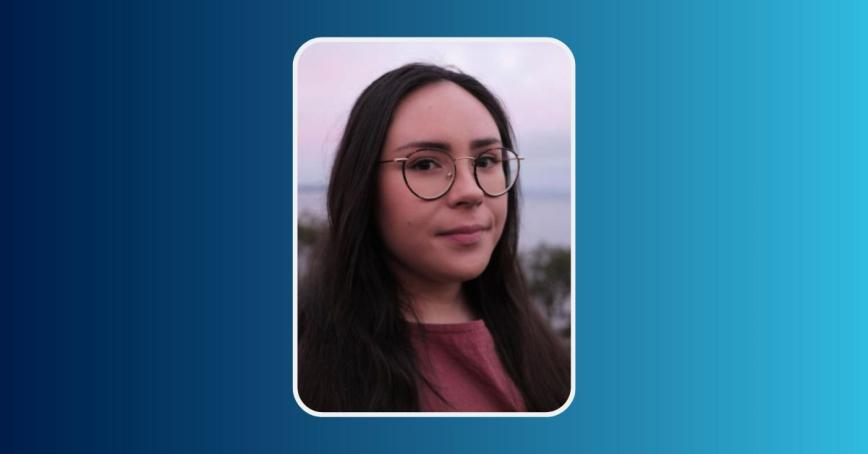How can Indigenous Knowledge prevent gender-based violence?

Learn more about the Indigenous student experience at Royal Roads University.
“For lack of a better description, well, I’m tired of people dying.”
That thought drove Jasmine Feather Dionne—assistant professor of Justice Studies and one of the newest members of the Emerging Indigenous Scholars Circle at Royal Roads University—to explore a dissertation on how the knowledge systems of the Cree, Dene and Métis Peoples of Treaty 8 could inform solutions to the extreme rates of gender-based violence in their home communities in and around Nistawoyou, or what is now called Fort McMurray, AB.
Dionne, who uses she/they pronouns, comes from the Dionne, Tremblay, Cardinal, Boucher and Mackenzie Cree and Métis families in the Nistawoyou region and is a member of the McMurray Métis Local #1935. She grew up in Northeastern Alberta—one of many areas in Canada where the land has been heavily impacted by oil and gas extraction. Extractive industries, like oil and gas, have been found to have a direct link to violence against Indigenous women, girls and Two-Spirit+ People (MMIWG2S+).
Dionne first identified a gap in research when they were completing their master’s research, exploring how connection and access to land can be a determiner of health outcomes for Indigenous peoples.
“I started to see that there was a lot of literature making correlations between [gender-based violence and extractive industries],” says Dionne. “But there wasn’t a lot of discourse about the solutions to gender-based violence in relation to extractive capitalism, in relation to the patriarchy, and how we find ourselves in the context of governance.”
At the same time, Dionne says they became aware of Indigenous feminism— defined as a field of study and activism that analyzes how gender and power intersect with colonial legacies, racism, and other forms of oppression targeting Indigenous communities.
“I started to think about how I am very limited in how I can access land in my territory because of the oil and gas industry and how much land is leased to them by the band councils, which are predominantly Indigenous men,” Dionne says.
These intersections brought her to wonder about what solutions to these complex problems could be found in the Cree, Dene and Métis knowledge systems, which led them to their research focus on care ethics and care politics.
Dionne’s research involves kinship law, which is a common thread in Indigenous legal traditions, which prescribes teachings and values on reciprocal relationships and prioritizing family connections, community well-being, and respect for traditional practices. Similarly, care ethics is a social organizing theory that emphasizes personal safety, body sovereignty and the importance of reciprocal, caring relationships – not just with family, but with community and, in the case of Dionne’s home territory, between nearby communities.
Dionne shares that in their archival research, she found that the Cree, Dene and Métis Nations had built such strong relationships of accountability and kinship, that the Treaty 8 commissioners at the time were perplexed by their inter- and intra-community organizing and strong ties, and realized it would be more complex to settle a treaty in the area as a result.
“So, if we continue to talk about kinship as a source of care ethics and care politics, I think we can continue to find ways that challenge settler colonial conceptions of governance,” explains Dionne. “And by doing that, we’ll be able to move further away from these normative models of band governance, provinces or even Canada as an entity.”
While completing the final stretch of her Doctor of Philosophy in Indigenous Governance at the University of Victoria, Dionne is continuing to build community at Royal Roads. Formerly an Indigenous Education Instructional Designer for RRU, they designed a new undergraduate Indigenous Studies course and will be instructing this course to first-year students at the new RRU Langford | John Horgan Campus in the fall.
As the member of RRU’s Emerging Indigenous Scholars Circle operating out of the Justice Studies department, she says she is thankful for the opportunity of culturally relevant mentorship.
“Shauneen [Pete] is an incredible scholar, activist and knowledge holder,” says Dionne. “I want to have that time with her to ensure that my academic career doesn’t replicate a lot of the unfortunate, designed violence that other Indigenous women and femmes have experienced trying to make their way in institutions.”